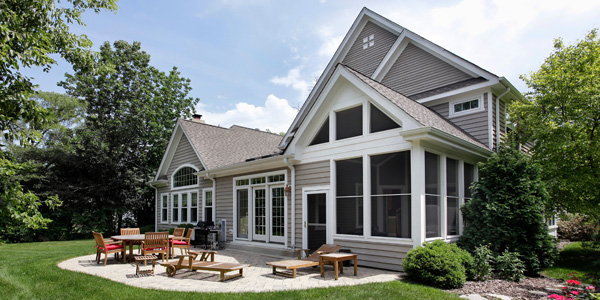The most popular Reverse mortgage, The Home Equity Conversion Mortgage, is managed under HUD (Housing and Urban Development) and insured by the FHA (Federal Housing Authority). In my opinion, this product is the most protected mortgage and one of the most protected financial tools available to seniors. There are many reasons why they are so popular and protective. Here’s a few:
1.The borrowers, their heirs and estate are guaranteed to never owe more than the home is worth, no matter what. This is one of the protections of a non-recourse and FHA insured loan. The home guarantees its value and FHA insures any instances where the balance of the mortgage grows in excess of the value of the home or the value of the home drops. For example, the market bubble in 2006-08. Many folks found themselves living in homes that were valued at less than the note they were paying on the home. If they went to sell the home, they would have owed more than they could get in the sale. This is guaranteed not to happen with the FHA insured HECM. Whatever the amount of differential between 95% the appraised value and the mortgage balance is paid by the FHA insurance.
2.Homeowners are guaranteed to never come off title. They are still the owners, no one else has an interest in the home from an owner’s standpoint, and they still make all decisions concerning the home. The only way that title would change would be to refinance the HECM, which can be done when financially provable benefits exist.
3.Homeowners are guaranteed to never have to make a mortgage payment. In the case where they have a current mortgage and are seeking the HECM, proceeds from the HECM will be used to pay off the current mortgage thus freeing up more personal cashflow. In the case where they own the home outright, they will realize more funds from the asset while still maintaining equity in their home. In both cases the homeowners will still be responsible for all property related charges including, HOA dues, taxes and insurance as well as general upkeep and maintenance on the home, just as they are now.
4.With the three prior items, that means that the homeowners are guaranteed to never have to move out of the home unless they choose to do so. Using the home’s equity to stay in the home is a tremendous benefit and, in many cases, saves the home for the owners. Whether its rising costs outside the home or loss of an income many owners need an added safety net in the liquidity that the HECM provides. There are many ways to realize that liquidity and I will cover them in a later blog
5.The flexibility of payout options and products are diverse and include adjustable as well as fixed rates that can be chosen depending on the homeowner’s goals and or needs.
The next most popular would be a Jumbo Proprietary Reverse Mortgage:
These are not FHA insured programs but operate in the same manner as far as never owing more than the home is worth. The major differences are as I just stated its not FHA insured, and these are for homes with a value more than the FHA lending limit of $1,149,825 up to $4 million. There are a few companies that provide the jumbo loan, and each one has their own options. When looking into a Jumbo Reverse Mortgage, it is advisable to ask your lender if they service them and who the product belongs to. You will find in many cases that the reverse mortgage company you are working with will be using a proprietary product from another company, this means there is going to be more underwriting stipulations to be satisfied. Generally, that is not a big deal other than being a little more time consuming. Also, with this not being the FHA insured HECM the payout options function a bit differently as well. In many cases you will be required to take a certain amount of cash at closing, growth rates are not for the “life of the borrower” and tend to be smaller. Again, there are adjustable and fixed rate products. It is always advisable to compare with the HECM to determine mathematically which benefits the homeowner more depending on their goals.
Finally, there is the Single Purpose Reverse Mortgage:
These are provided by nonprofits and state and local governments. They are designed to be inexpensive because they are backed by the government and the nonprofits. While they are like the HECM, single purpose loans limit how the funds can be used. Ultimately the funds can only be used for a single purpose approved by the lender. For example, medical bills or renovations to the home, interestingly, this product cannot be used for more than one purpose.
There are many more subtle differences and benefits, this is not the entire list. Seniors should always seek out a reputable reverse mortgage lender or loan officer for more education and help to find which product might be best for them. I educate all my clients and potential clients and there is never a charge for the information. The only investment is time to learn!
Donald Battista, NMLS ID 2030959. Borrower must occupy home as primary residence and remain current on property taxes, homeowner’s insurance, the costs of home maintenance, and any HOA fees. Mutual of Omaha Mortgage, Inc. dba Mutual of Omaha Reverse Mortgage, NMLS ID 1025894. 3131 Camino Del Rio N 1100, San Diego, CA 92108. Arizona Mortgage Banker License 0926603. Florida Mortgage Lender Servicer License MLD1827. Louisiana Residential Mortgage Lending License 1025894. Oklahoma Mortgage Lender License ML012498. Texas Mortgage Banker Registration 1025894. These materials are not from HUD or FHA and the document was not approved by HUD, FHA or any Government Agency. Subject to credit approval. For licensing information, go to: www.nmlsconsumeraccess.org | Equal Housing Lender

